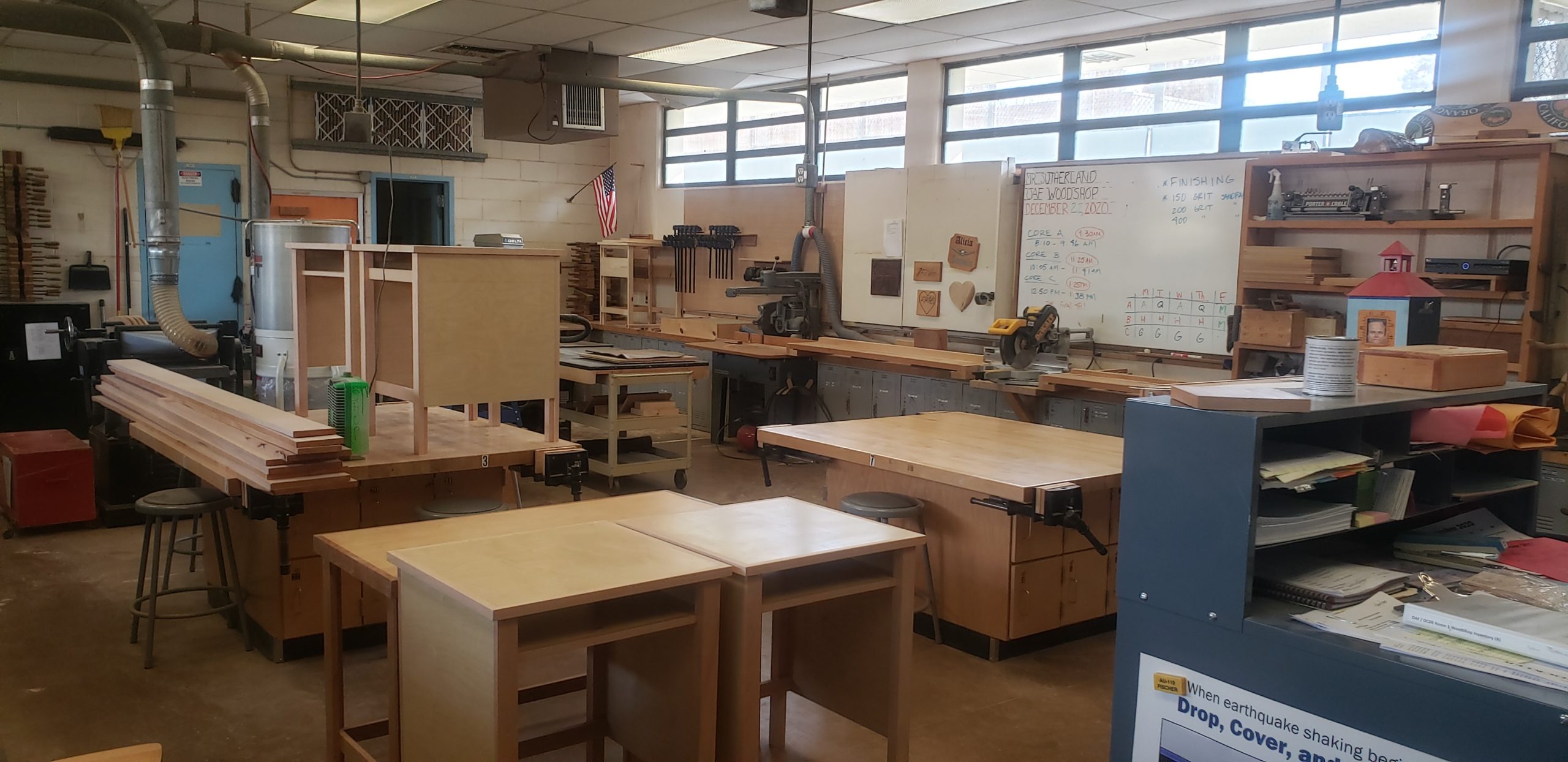
It all started with an idea for a kindness project.
Now, students from Otto A. Fischer School are building desks for families across the county, giving local students a workspace to call their own and helping them get through virtual learning.
Fischer is one of two schools operated by OCDE’s ACCESS division inside detention facilities run by the Orange County Probation Department. The project — internally known as “Operation Study Hall” — was the brainchild of Lisa Lanier, manager of Title I programs for OCDE’s division of alternative education.
Lanier got the idea after hearing a story in the news about a student building desks in his garage for peers learning at home. She immediately enlisted the help of Fischer School woodshop teacher Dan Sutherland, site liaison Richard Berman and the Probation Department.
Originally intended to provide students at Fischer with hands-on, project-based learning skills, Lanier says the activity has turned into so much more.
“This has become so much more than just building desks in woodshop,” said Lanier. “It has taught these students that they can do for others and that their reach can be further than the walls that surround them.”
Students began building the square-shaped workspaces last month and have since constructed 21 desks — with additional desks in various stages of construction. Built in the school’s on-campus woodshop and designed to be lightweight and compact, the finished structures will benefit OCDE ACCESS students in area schools across the county.
“With so many of our ACCESS community school students currently learning from home full-time or hybrid, we recognize that many may not have a suitable location in their home to accommodate the instructional process,” said Lanier. “The desks not only represent a commitment to learning, but also an opportunity for students at Fischer School to perform an act of kindness for others while gaining valuable woodworking skills.”
When students enter Orange County Juvenile Hall, their lives may be temporarily put on hold, but their education doesn’t stop. Because students arrive at Fischer under less than ideal circumstances, most are performing far below their grade levels and are missing credits.
But that is what makes this project so unique.
“The six members of the building team are made up of students from both special education and general education backgrounds,” said Berman. “Participation is based on positive behavior as it is seen as a privilege to build desks for others.”
Berman said the project has been a great opportunity for students to display their accomplishments in the community. But beyond that, the experience of seeing their handiwork benefit others is just as beneficial to students as knowing how to do the work in the first place.
“When students are involved in a project like this, they can see how the skills that they’re developing can truly make a difference in the lives of families at the time that it’s needed,” Berman said. “It’s a life skill that they will apply over and over again in different settings.”
ACCESS stands for Alternative, Community and Correctional Education Schools and Services. The division serves more than 10,000 students a year, including those who thrive in non-traditional settings and students who have encountered significant academic and social obstacles. To learn more about Otto Fischer School and the ACCESS program, please visit this website.
